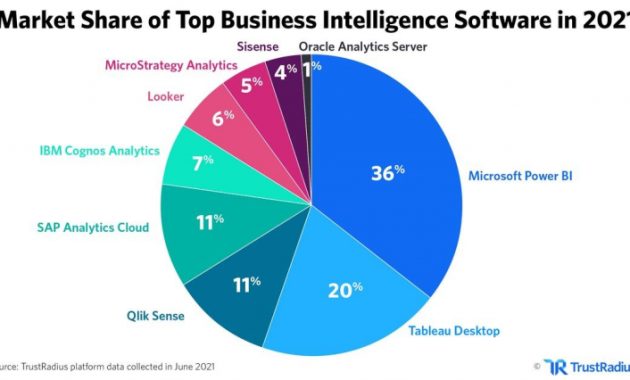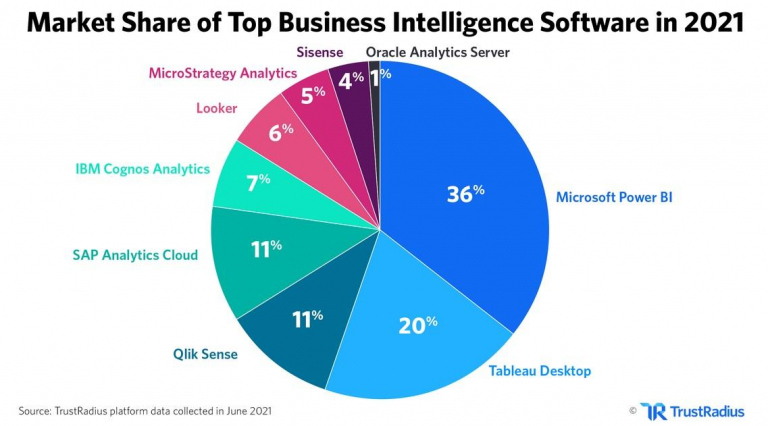
Why You Need Business Intelligence Software for Smart Growth
In today’s data-driven business landscape, making informed decisions quickly is crucial for success. Companies are collecting more data than ever before, but raw data is useless without the tools to analyze it. This is where Business Intelligence (BI) software steps in. It transforms raw data into actionable insights, empowering businesses to make smarter decisions and achieve sustainable growth. This article will explore the critical role of Business Intelligence software in fostering smart growth, examining its benefits, and providing insights into how to choose the right solution for your organization. The question is no longer whether you need Business Intelligence software, but how soon can you implement it?
Unlocking the Power of Data: The Core Function of Business Intelligence
At its core, Business Intelligence software is designed to collect, process, analyze, and present data in a clear and understandable format. This involves integrating data from various sources, such as databases, spreadsheets, and cloud services. The software then uses a range of analytical techniques to identify trends, patterns, and anomalies. This enables organizations to see the bigger picture and gain a deeper understanding of their operations. The ultimate goal is to translate data into knowledge that fuels strategic decision-making. It’s about moving beyond gut feelings and intuition to make data-backed choices.
Key Benefits of Implementing Business Intelligence Software
The adoption of Business Intelligence software offers a wide array of advantages for businesses of all sizes. These benefits contribute directly to smart growth and improved performance. Let’s delve into some of the most significant:
- Improved Decision-Making: BI software provides real-time insights into key performance indicators (KPIs). This allows decision-makers to quickly identify areas for improvement and opportunities for growth. Data-driven decisions are always superior to guesswork.
- Enhanced Efficiency: By automating data analysis and reporting, BI software frees up valuable time for employees. This allows them to focus on more strategic tasks that drive business value. Automation leads to increased productivity.
- Cost Reduction: BI software helps businesses identify inefficiencies and areas where costs can be reduced. This can include optimizing processes, streamlining operations, and making better purchasing decisions. Reduce expenses and increase profits.
- Increased Revenue: By understanding customer behavior and market trends, BI software enables businesses to identify new revenue streams and improve their sales and marketing efforts. Targeted strategies yield better results.
- Competitive Advantage: In today’s competitive market, having access to real-time insights can give businesses a significant advantage over their rivals. Businesses that leverage data are always ahead.
- Better Customer Understanding: BI tools can analyze customer data to provide insights into their preferences, behaviors, and needs. This allows businesses to tailor their products, services, and marketing efforts to better meet customer expectations. Know your customers better.
Key Features to Look for in Business Intelligence Software
Not all Business Intelligence software is created equal. When evaluating different solutions, it’s important to consider the features that best align with your business needs. Some key features to look for include:
- Data Integration: The ability to connect to a wide range of data sources is crucial. This includes databases, spreadsheets, cloud services, and other relevant platforms. Seamless data access is essential.
- Data Visualization: Effective data visualization tools are essential for presenting complex data in an easy-to-understand format. This includes charts, graphs, dashboards, and other visual aids. Visuals improve understanding.
- Reporting and Analysis: The software should offer robust reporting and analysis capabilities. This includes the ability to create custom reports, perform ad-hoc analysis, and identify trends and patterns. Deep analysis is key.
- User-Friendly Interface: The software should be easy to use, with an intuitive interface that allows users to quickly access and analyze data. Ease of use is critical for adoption.
- Scalability: The software should be able to scale to meet the growing data needs of your business. This ensures that the software can handle increasing data volumes. Future-proof your investment.
- Security: Data security is paramount. The software should offer robust security features to protect sensitive data from unauthorized access. Protect your valuable data.
- Mobile Accessibility: Access to data on the go is increasingly important. The software should offer mobile accessibility, allowing users to access and analyze data from their mobile devices. Access data anytime, anywhere.
Choosing the Right Business Intelligence Software for Your Business
Selecting the right Business Intelligence software is a strategic decision. It can significantly impact your organization’s ability to achieve its goals. Here’s a step-by-step guide to help you choose the best solution:
- Assess Your Needs: Identify your specific business needs and goals. What questions do you want to answer with data? What are your current data sources? Understand your requirements.
- Define Your Budget: Determine how much you are willing to spend on Business Intelligence software. Consider the cost of the software, implementation, training, and ongoing maintenance. Plan your financial investment.
- Research Different Solutions: Research different Business Intelligence software solutions and compare their features, pricing, and reviews. Explore your options thoroughly.
- Request Demos and Trials: Request demos and free trials of the software solutions you are considering. This will allow you to get a feel for the software and see how it works. Test before you buy.
- Consider Implementation and Training: Evaluate the implementation process and the availability of training resources. Ensure there is adequate support. Ensure smooth implementation.
- Evaluate Vendor Support: Consider the vendor’s support and customer service. This is important for ongoing maintenance and troubleshooting. Reliable support is crucial.
- Make a Decision: Based on your research and evaluation, make a decision on which Business Intelligence software solution is the best fit for your business. Choose the right solution.
Real-World Examples of Business Intelligence in Action
Many businesses across various industries have successfully implemented Business Intelligence software. They have achieved significant improvements in their operations and performance. Here are a few examples:
- Retail: Retailers use BI software to analyze sales data, identify trends, and optimize inventory management. This leads to increased sales and reduced costs.
- Healthcare: Healthcare organizations use BI software to improve patient care, optimize resource allocation, and reduce costs. Better care through data.
- Manufacturing: Manufacturers use BI software to monitor production processes, identify inefficiencies, and improve quality control. Increase efficiency and quality.
- Finance: Financial institutions use BI software to analyze financial data, identify risks, and make better investment decisions. Make smarter financial decisions.
The Future of Business Intelligence and Smart Growth
The future of Business Intelligence software is bright, with continued advancements in areas like artificial intelligence (AI) and machine learning (ML). These technologies are being integrated into BI platforms to provide even more powerful insights. This leads to enhanced automation and predictive analytics. The goal is to empower businesses to make even smarter decisions and drive sustainable growth. The evolution of Business Intelligence software will continue to be a key driver of smart growth. Businesses must embrace these changes to stay competitive. [See also: Related Article Titles]
Conclusion: Embrace Business Intelligence for a Brighter Future
In conclusion, Business Intelligence software is no longer a luxury but a necessity for businesses that want to thrive in today’s data-driven world. By implementing BI software, organizations can unlock the power of their data, improve decision-making, and achieve sustainable growth. The time to act is now. Embrace Business Intelligence software to secure a brighter future for your business. Don’t delay; start today.

